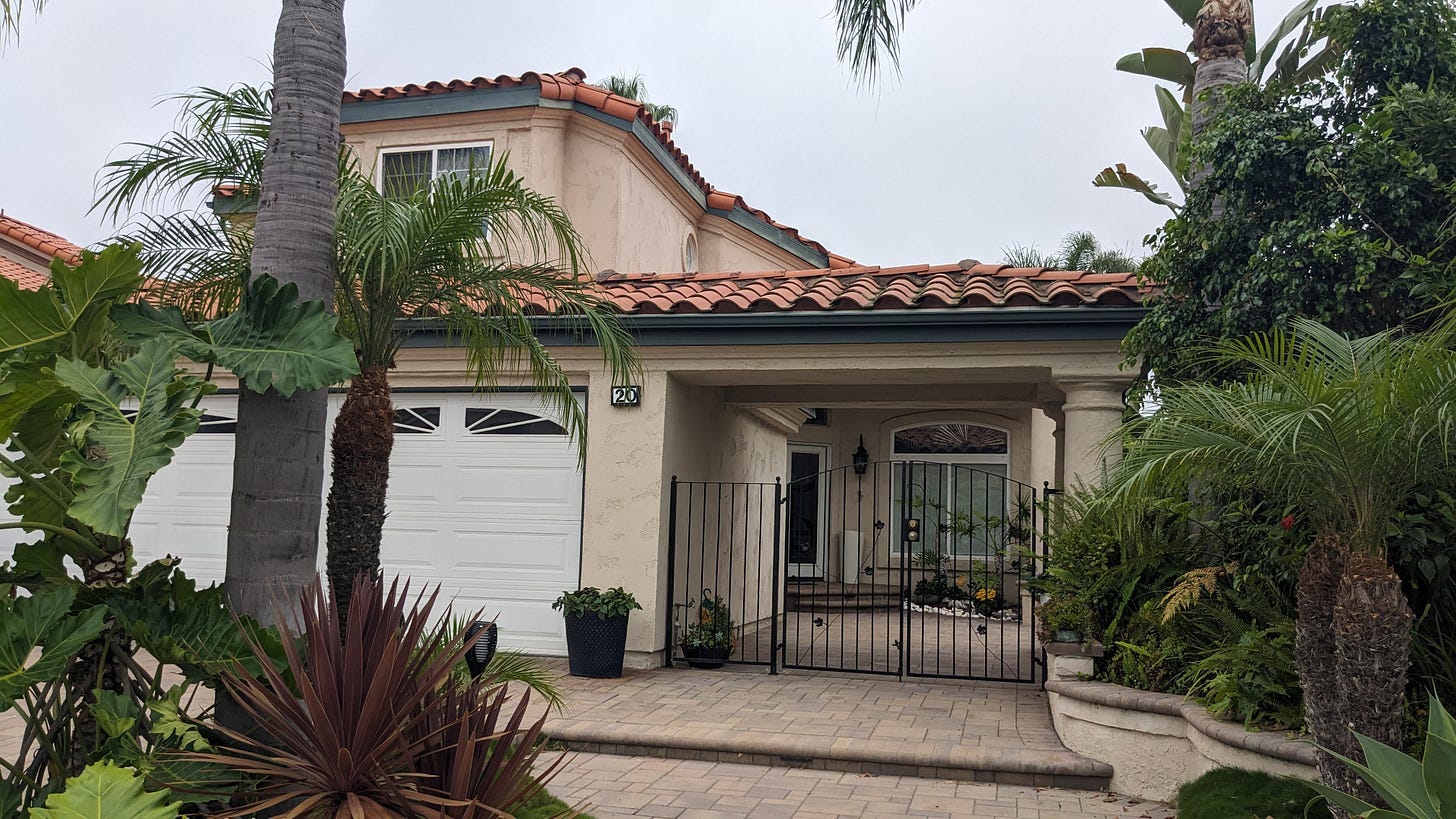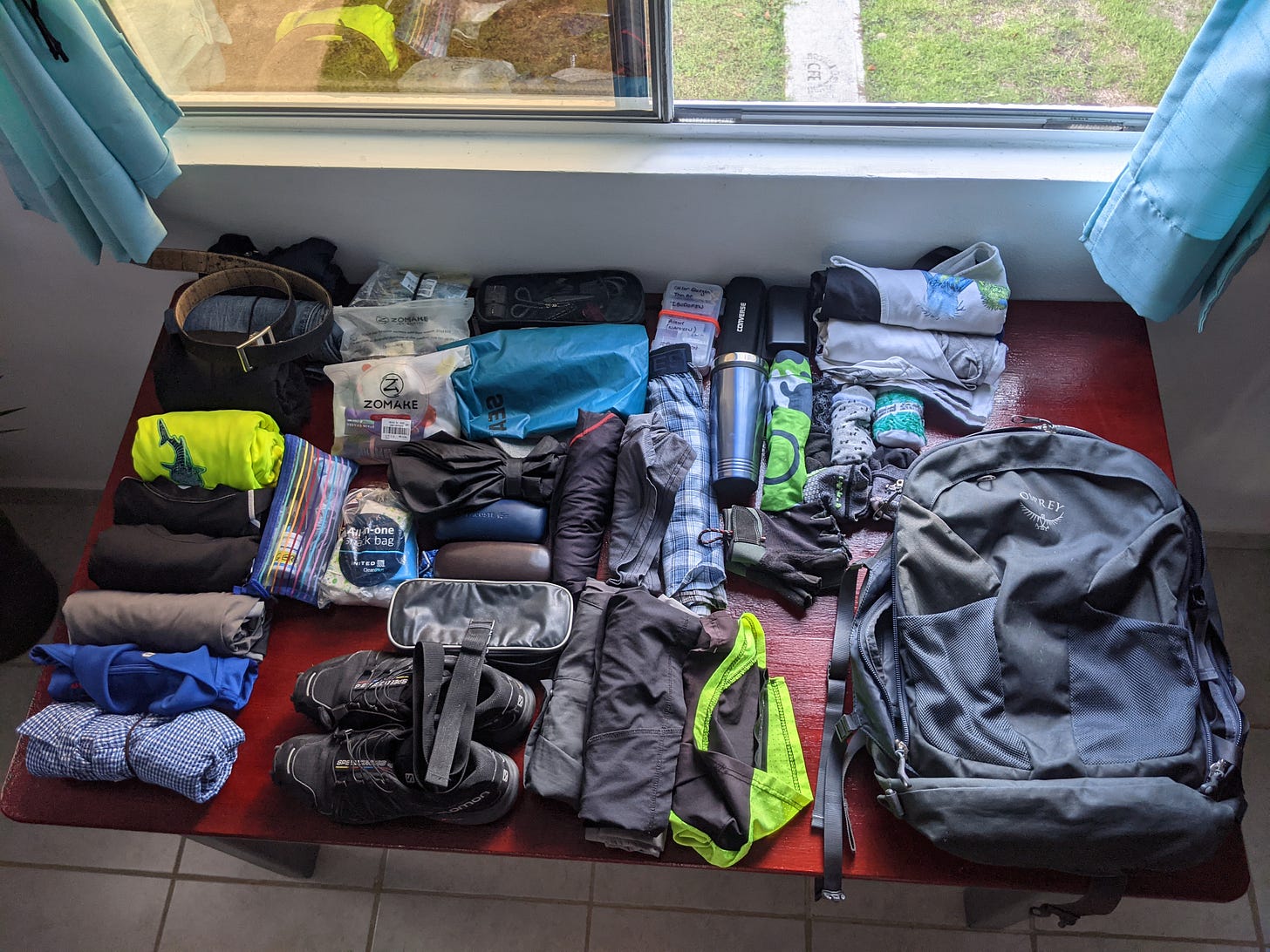OK, let’s dispel the rumor about life on the road being EXPENSIVE…
The other day Kat and I were at the grocery store, and we started talking about the stuff we DIDN’T need. We didn’t need cleaning products for our room, and we didn’t need spices and other sundries. I reflected back on the many conversations we’ve had with people about how we afford this extravagant nomadic lifestyle, and a little lightbulb went off.
I was a homeowner in California for decades, and over those years I had some really cool properties. And at one point or another EVERY single one of them needed repairs, and they all needed maintenance. Condo living was easy in my youth, and though I got hit by heavy HOA dues, it covered the exterior of the property, roof, the grounds, the pool, guard gate, and a host of other small items. The dues were never cheap and only continued to rise over the years.
A few years later, when I got my own home, I was confronted with the reality and responsability for many of those things! My first new home needed EVERYTHING, from hardscaping to landscaping, from carpets to tiles to appliances, etc… Buying a USED home was easier, but came with its own list of things to be done, since I never knew what was wrong—until it/ they broke. Even though sellers were supposed to disclose any “issues,” many did not.
Yards, exterior maintenance, and a host of other things all had to be done on a regular basis. And then there’s the utilities…water, gas, trash, electricity. Oh, and property taxes! They can all add up and be subject to crazy swings in excess heat/ cold. My divorce in 2013 was also the end of my home ownership days and truly, I never looked back. Sure, it would have been nice to ride that upwards tick of home appreciation, but I rode that roller coaster for decades, and was on the winning side as well as the losing side. As a new renter I only had to keep my apartment in good shape, pay my own utility bills (much smaller), and take care of just me. When I started to travel in 2018, AirBNB (and others) were revelations and blessings, and I’ve been using them more than 15 years, and have stayed at more than 200 properties. Not all have been five star, but most were on the “good to very good, or excellent” side of the equation. There have only been a handful we’ve had to walk away from.
With a few we have had to pay electricity bills in certain places as part of the deal, but that was about it. No yardwork to maintain; no cleaning supplies unless we chose to buy them. We bought our food, our clothing, and whatever we needed to make our lives “comfortable,” and that was it.
Years ago we were introduced to the mantra: “If we don’t wear it, eat it, or use it to travel, we don’t buy it!” That saying has saved us a lot of money and inconvenience of carrying extra things.
Mind you, we/us travelers do not travel like tourists, and usually we do not stay in fancy schmancy hotels. Most rooms are private, some are shared flats with other roomers, and occasionally we’ll live with the owners of the properties, but in a separate area. We also try to travel during shoulder season, and of course medical expenses have been covered in several prior blogs and published writings.
Since we usually travel one way, most of our flights and other transportations are not round trip, which keeps expenses lower. Plus we always head in “forward” directions and avoid backtracking. We rarely, if ever, rent cars (motorcycles not included…), and don’t do a lot of touristy trips or excursions. Two meals a day is our norm, and I usually make breakfast at home, and we’ll typically have dinner out. We mostly stay in warmer areas, so don’t need boots or heavy outerwear, but we do have some, and we have a few bags stashed in different places; cold weather gear in Turkey; a bag in Albania with larger kitchen items, and a small bag in Malaysia as well as Cambodia with extra items we didn’t need at the time. We joke that sometimes we forget what we have where, and if something were to happen to it, it wouldn’t necessarily be a loss. Yes, living on the road can be unsettling, uncomfortable, and inconvenient, but it can also be freeing, adventurous, and just plain fun. Oh, and inexpensive if you do it the “right” way.
A few months ago I started these Travel Younger newsletters, and here’s some good background information including prior links and information on becoming a Founding Member, and getting a free video call every quarter.
Since the day we left the US, we’ve tried to show that anyone could live as a nomad, and it was NOT that expensive, nor difficult, and age was not always a limiting factor. We live comfortably on about $3,000 USD per month, and in the US we’d have a hard time doing that. In California, even harder. If we can do it at ages 70 and 72, you can, too.
Questions? Suggestions? Please share!










I didn’t start my nomadic life until I was 88 when I sold everything I had except my clothes and a few items like my oil painting supplies. I’m always in warm climates and never want to live in Canadian winters ever again! I am now in my 91st year and I’ve been living the best years of my life - no responsibilities - airbnbs and Ubers are my best friends. Free as a bird to come and go as I wish. Lots of friends and always making new ones along the way. I’m grateful to be in excellent health, fit, mobile and always a positive attitude. I write a weekly blog www.nomad-nana.com of my experiences. I’m told I’m an inspiration which makes me feel good that others have opened their eyes to this type of lifestyle when they are ready.
I’m ready to full time travel at 55. But my spouse wants to wait until he’s 65 when his state pension kicks in. I have a small 401k and have been working on having some other streams of income through remote work. Think digital nomad style. I’m going to have to visit him in the summers because I am over NE winters.